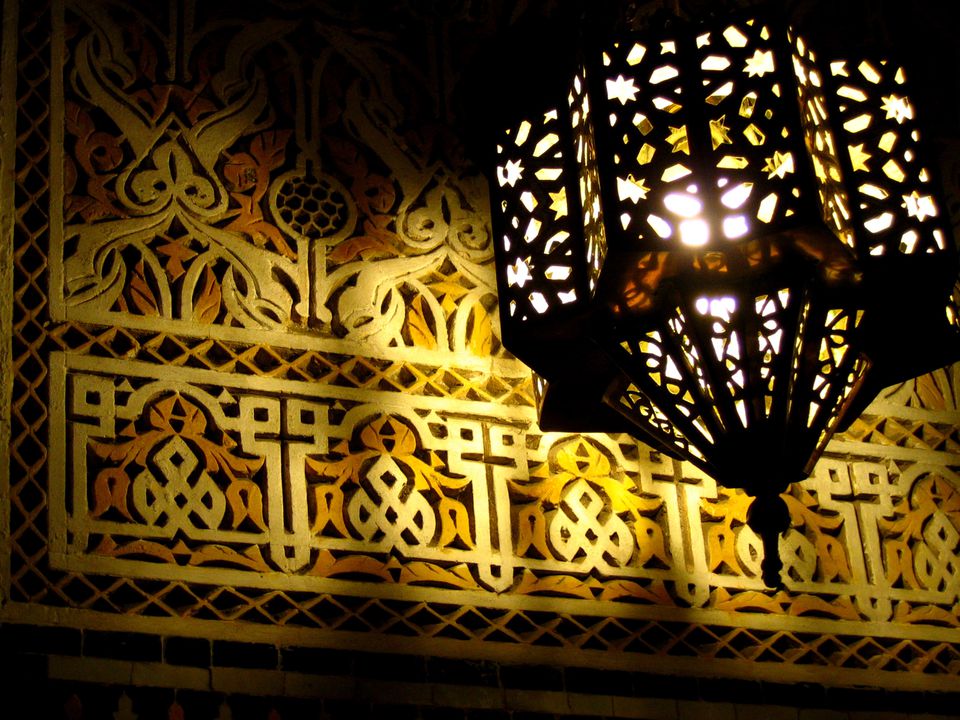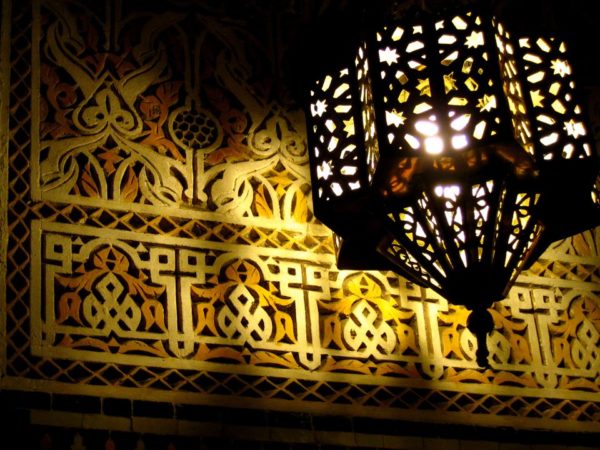

By: Muwasala
Source: Muwasala
Allah says that He wants you to finish the prescribed period and to glorify Him for the fact that He has guided you, perhaps you shall be grateful (2:185).
“Finishing the prescribed period” means completing the fast of Ramadan. One of the means of “glorifying Him” is in making takbir, which is an expression of our gratitude to Allah for His guidance and enabling grace (tawfiq). We should fill the night before Eid with takbir from Maghrib up until the Eid prayer in the morning. The takbir is not limited to a specific time or place but rather it should be made at all times in our houses and mosques and in the streets (without causing disturbance). We should read it with our hearts filled with the greatness of Allah so that we are not merely repeating words without experiencing their meaning.
It is a Sunnah of the Prophet (Allah bless him and grant him peace) to give life to the night before Eid, meaning spending whatever time we are able to during that night in worship and remembrance such that the night comes alive. The least we should do is to pray Maghrib, Isha and Fajr in congregation and then devote whatever time we are able to Allah. The mosques of Tarim fill in the the second half of the night with people reading the Qur’an in groups, praying and making takbir together at intervals. At the end of the night everyone comes together for a khatam and dua.
It is mentioned in the hadith that whoever gives life to the nights before the two Eids, Allah will give life to his heart on the day when hearts die. What is primarily meant is safety on the Day of Judgement, but even in this life the majority of people’s hearts are dead, starved of the remembrance of Allah and heedless of the return to Him. Remembering Allah on nights such as these, however, when most people are busy with other things, will give life and tranquility to our hearts.
Eid then will be a true celebration, an expression of our gratitude to Allah for the ability to worship and remember Him in the previous days and nights.
There are different forms of the takbir. Here is one of them:
اللهُ أَكبرُ اللهُ أَكبرُ اللهُ أَكبر , لا إله إلا الله , الله أكبر الله أكبر ولِلَّهِ الحَمْد
Allahu akbarullahu akbarullahu akbar. La ilaha illallah. Allahu akbar Allahu akbar wa lillahi-hamd.
(three times)
الله أكبرُ كَبيرا والحمدُ لله كثيرا وسُبْحانَ اللهِ بُكْرَةً وأَصيلاَ
Allahu akbaru kabira Wal-hamdu lillahi kathira Wa subhanallahi Wa bihamdihi bukratawwa asila
لا إله إلا الله لا نَعْبُدُ إلا إِيَّاهُ مُخْلِصِينَ لَهُ الدِّينَ وَلَوْ كَرِهَ الكافِرون
La ilaha illallahu, la na^budu illa Iyyah, Mukhlisina lahud-Dina Wa law karihal-kafirun
لا إله إلا الله وَحْدَه صَدَقَ وَعْدَه ونَصَرَ عَبْدَه وأَعَزَّ جُنْدَه وهَزَمَ الأَحْزَابَ وَحْدَه
La ilaha illallahu wahdah, Sadaqa wa^dah, wa nasara ^abdah, Wa ‘a^azza jundahu, Wa hazam-al-‘ahzaba wahdah
لا إله إلا الله واللهُ أكبرْ ولِلَّهِ الحَمْد
La ilaha illallah, Wallahu akbar wa lillahi-hamd.
“Allah is most great, there is no god but Him, all praise belongs to Him.
There is no god but Him and we worship none but Him in complete sincerity even if the disbelievers dislike it.
There is no god but Him alone. He fulfilled His promise, gave victory to His slave, made mighty His forces and He alone destroyed the Confederates. Allah is most great, there is no god but Him, all praise belongs to Him.”
The scholars say that whenever it is recommended to remember Allah it is also recommended to mention His Messenger (Allah bless him and grant him peace). Had it not been for him, there would be no Ramadan or `Id or takbir. For this reason we should add, in honour of our Messenger, his Companions, wives and progeny:
اللهُمَّ صلِّ على سَيِّدِنا محمد
Allahumma salli ^ala sayyidina Muhammad,
وعلى آلِ سَيِّدِنا محمد
Wa^ala ali sayyidina Muhammad,
وعلى أَصْحابِ سَيِّدِنا محمد
Wa^ala as–habi sayyidina Muhammad,
وعلى أَنْصَارِ سَيِّدِنا محمد
Wa^ala ansari sayyidina Muhammad,
وعلى أَزْواجِ سَيِّدِنا محمد
Wa^ala azwaji sayyidina Muhammad,
وعلى ذُرِّيِّةِ سَيِّدِنا محمد
Wa^ala dhurriyyati (sayyidina) Muhammad
وسلِّمْ تَسْليماً كثيراً
wa sallim tasliman kathira.
We should do what we are able to implement the other sunnahs of the Eid which can be found in the books of fiqh.
Among them are:
- Taking a bath whether or not one is attending the Eid prayer and wearing one’s best clothes and best perfume.
- One should eat an odd number of dates before the Eid prayer and walk to the prayer, taking a longer route on the way there and returning by a different route.
- One should shake hands with one’s brethren, congratulate them on the Eid and ask that their actions be accepted by Allah.
- One should be especially generous to one’s family, display one’s happiness on the occasion and try to visit one’s relatives and friends.



